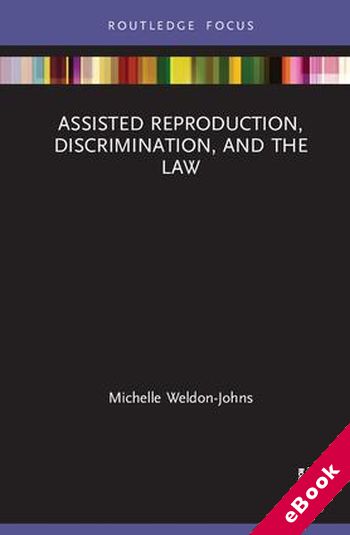
The device(s) you use to access the eBook content must be authorized with an Adobe ID before you download the product otherwise it will fail to register correctly.
For further information see https://www.wildy.com/ebook-formats
Once the order is confirmed an automated e-mail will be sent to you to allow you to download the eBook.
All eBooks are supplied firm sale and cannot be returned. If you believe there is a fault with your eBook then contact us on ebooks@wildy.com and we will help in resolving the issue. This does not affect your statutory rights.
The numbers of women undergoing Assisted Reproduction Technology (ART) treatments have risen steadily, yet they remain largely outside the scope of equality and employment law protection while undergoing treatment. Assisted Reproduction, Discrimination, and the Law examines this gap in UK law, with reference to EU law as appropriate, and argues that new conceptions of equality are necessary.
Drawing from the literature on multidimensional and intersectional discrimination, it is argued that an intersectionality approach offers a more useful analytical framework to extend protection to those engaged in ART treatments. Drawing from Schiek’s intersectional nodes model, the book critically examines two alternative interpretations of existing protected characteristics, namely infertility as a disability, with reference to the social model of disability and the UN Convention on the Rights of Persons with Disabilities 2006; and redefining the boundaries of pregnancy and/or sex discrimination, with reference to attempts to extend associative discrimination to pregnancy. Comparisons are drawn with the US, where infertility has been recognised as a disability under the American’s with Disabilities Act 1990 and as a pregnancy-related condition under the Pregnancy Discrimination Act 1978. A specific right to paid time off work to undergo treatment is also proposed, drawing comparisons with the US Family and Medical Leave Act 1993 and the existing UK work-family rights framework. It is argued that the reinterpretations of equality law and the rights proposed here are not only conceptually possible, but could practically be achieved with minor, but significant, amendments to existing legislation.